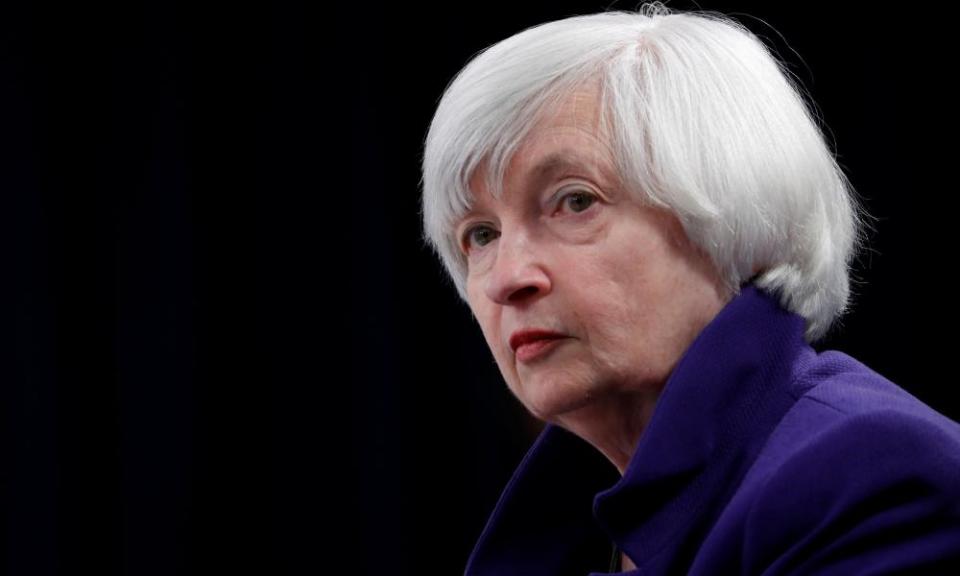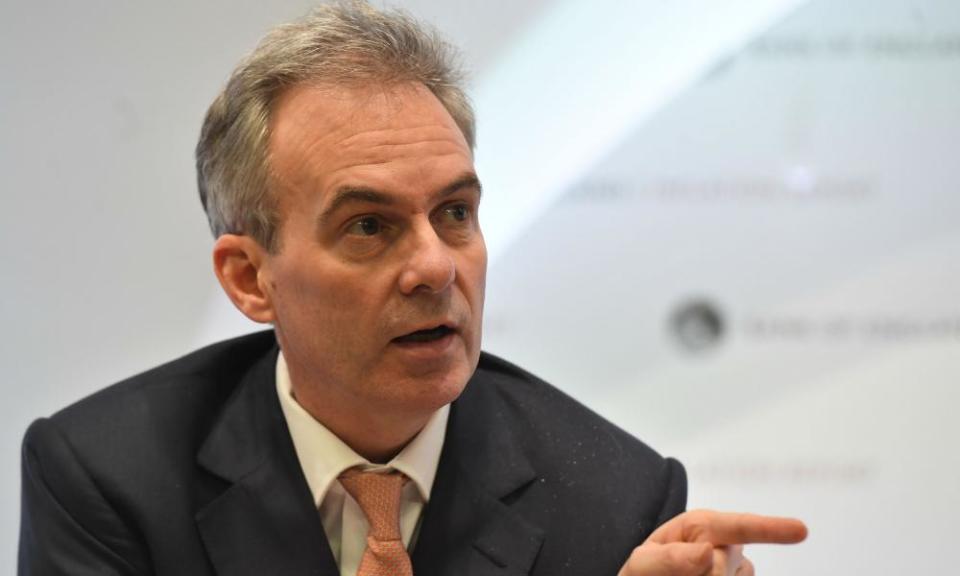Names in the frame to be Bank of England governor

As the chancellor begins the search for a new Bank of England governor to succeed Mark Carney, here are some of the potential runners and riders.
Agustín Carstens – general manager, Bank for International Settlements
Philip Hammond is keen to find a replacement with an international reputation, which puts some foreign candidates at the top of the list. Carstens is the Mexican-born general manager of the Bank for International Settlements, which is based in Switzerland and is the leading light for central banks worldwide. Carstens, a former finance minister and central bank governor of Mexico, knows everybody on the international circuit and is considered to be a careful custodian of monetary policy. However, unlike Carney, who spent part of his education in the UK, he is unfamiliar with the British economic landscape and lacks the Canadian’s communications verve.
Raghuram Rajan – former governor of Bank of India
Rajan certainly has the leadership experience needed. He is also a top economist, who warned in 2005 that a financial crisis was looming. He has spent recent weeks publicising his recent book, which talks about renewing a broken capitalist model. It offers remedies that fit with Hammond’s preference for greater competition at all levels of the economy. One problem: he has said he does not want the job – but perhaps he could be persuaded.
Janet Yellen – former head of the US Federal Reserve

Janet Yellen’s experience of raising interest rates could come in handy at the Bank.Photograph: Jonathan Ernst/Reuters
Yellen was disappointed not to be reappointed as head of the Federal Reserve by Donald Trump last year but the Fed’s loss could be the Bank of England’s gain. As vice-chair to Ben Bernanke, then chair, she helped steer the US economy through the financial crisis and then began to unwind its stimulus programme. Her experience of raising interest rates and selling government bonds could be handy at the Bank, when the time comes to begin offloading the £450bn-plus of bonds the Bank acquired under its quantitative-easing programme.
Andrew Bailey – chief executive, Financial Conduct Authority
Bailey is considered a safe pair of hands after 30 years at the Bank, where he rose to be a deputy governor, before taking up the role of consumer watchdog. He is likely to maintain the Bank’s position on interest rates of slow and incremental increases. But he is not a macroeconomist (someone who studies the bigger picture) and has not sat on the monetary policy committee (MPC). If Hammond thought he was right for the role, he would probably have appointed him last year before pleading with Carney to stay on for an extra year.
Shriti Vadera – chair, Santander UK

Shriti Vadera has the widest business experience of any candidate.Photograph: Stefan Wermuth/Reuters
A Labour peer not known to be close to the party leadership, Vadera is a well-connected former investment banker and fixer, who came to prominence in the Treasury during the financial crash as one of Gordon Brown’s chief aides. She has directorships with the mining firm BHP and the pharmaceuticals business AstraZeneca, giving her the widest business experience of any candidate. Like Bailey, she has plenty of management experience, but has not been involved in the core activity of setting interest rates.
Jason Furman – professor, Harvard University
Barack Obama’s former chief economic adviser is known to be admired by Hammond, who last year lured him to oversee digital competition in the UK as the leader of a Treasury-financed expert panel. Furman was chief economist and a member of Obama’s cabinet. His current berth is at Harvard, where he has conducted research into a range of topics, all relevant to being a central bank governor. So while he has not been a central bank governor, and may be a bit leftist for the Tory party’s tastes, he has the background and the connections to do the job.
Sir Jon Cunliffe – deputy governor for financial stability, Bank of England
Looking closer to home for a governor could lead Hammond to consider Cunliffe – the ultimate insider who knows his way round Whitehall after two decades at the Treasury. He helped set the government’s interest rate policy in the 1990s before Gordon Brown made the Bank independent. He is affable and well regarded by MPs on the Treasury select committee, which sanctions appointments to the MPC. Cunliffe also has extensive experience in the EU after a stint as the UK’s senior representative in Brussels, which would be a point in his favour as Brexit challenges persist.
Ben Broadbent – deputy governor for monetary policy, Bank of England

Ben Broadbent has kept a low profile of late.Photograph: Victoria Jones/PA
Like Carney, Broadbent is a former Goldman Sachs banker but unlike him is considered aloof and more concerned with technical point-scoring. It is not clear he wants the job. He appeared to rule himself out last year after causing a political storm by referring to the economy as “menopausal”, which he said was a metaphor for economies that were “past their peak and no longer so potent”. He has kept a low profile since then.
Andy Haldane – chief economist, Bank of England
Haldane is understood to have clashed with Carney over the presentation of the Bank’s policies and the more hawkish stance on monetary policy Haldane adopted after the Brexit vote. Since then he has distracted himself with speeches about artificial intelligence and the future of employment allied to his position as chair of the government’s industrial strategy council. Haldane is possibly too thoughtful and academic to be the institution’s leader, although his radical tendencies have endeared him to the Labour shadow chancellor, John McDonnell, who could be in office by the time a decision is made on a new governor.
Nemat Shafik – director, London School of Economics
Dame Shafik, nicknamed Minouche, lasted little more than two years on the MPC before leaving to join the LSE as its first female director. She is well connected on the international circuit after her time as deputy director of the International Monetary Fund. Not afraid of making tough decisions, she would bring in fresh thinking at Threadneedle Street but is understood to be enjoying her role in academia.
Sharon White – chief executive, Ofcom
The head of the media regulator might not sound like an obvious choice for the next Bank governor, but White has an impressive CV with key roles both in the UK and abroad. Before joining Ofcom she was second permanent secretary at the Treasury, responsible for overseeing public finances. Other roles have included a civil service adviser in the No 10 policy unit under Tony Blair and senior economist at the World Bank in Washington DC. She is married to Robert Chote, head of the Office for Budget Responsibility, which is the Treasury’s independent forecaster.

 Yahoo News
Yahoo News 
